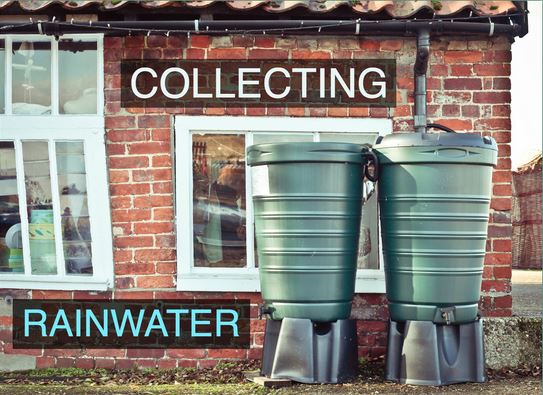One of the amenities that every business requires to properly function is having a dependable water supply. You, your staff, and your clients require drinking water to keep hydrated. It is impossible to have a clean commercial space if you don’t have a steady supply of water. For industrial enterprises, water can be a vital component of the manufacturing process and/or as a coolant for your machinery. Rainwater is one of the options that business owners have when it comes to sourcing the water that you need. But is it a good idea to depend on rainwater as your primary water source. This article will investigate the benefits and drawbacks of using rainwater.
The benefits of rainwater
- It is the most affordable option
There is no ‘middleman’ between you and nature. This means that you do not pay a single cent to gain access to rainwater, unlike most of the other water sources available to you. The only costs that you will incur to use rainwater as your primary water source is the infrastructure to collect and store the rainwater. For starters, you will need to set up gutters alongside your roofing to trap the rainwater runoff from your roof. You will also need to install a tank (or multiple tanks) for storage purposes. The tank(s) will have to be connected to your plumbing system so that the water can be accessed via your taps.
While the initial cost of setting up a rainwater collection and storage system might seem high, it is cheaper in the long term. If you run a business that uses a lot of water for non-drinking purposes such as a car wash or a farm, then the monthly bills that you pay for tapped water really add up. By eliminating these bills, you will see a return on your initial investment in less than a year.
- It is largely uncontaminated
From the moment rainwater leaves the clouds to when it reaches your storage tanks, it will only come into contact with your roofing, gutters and the piping infrastructure you have installed. This means that if you maintain a clean rainwater collection setup, then the water that you will collect will be largely uncontaminated. There have been instances in the past when the government provided water supply has been found to be filled with excessive chemicals and other contaminants. Similarly, some people might be allergic to fluoride which is present in tap water. In such instances, rainwater is the best option for you.
- It is the environmentally friendly option
Most of the water that is piped into our homes and businesses is either redirected from rivers/streams or sourced from underground water reservoirs. This has a negative effect on the ecosystem and might be unsustainable when you take into consideration the water needs of future generations. Rainwater runoff also has a detrimental effect on the environment, especially when it comes to soil erosion.
The challenges of using rainwater for your business
- Rain is an undependable source of water
No matter where you live, it is impossible to experience year-round rainfall. This means that for significant portions of the year, you will need to have an alternative water source. Having large water tanks can help you store water during drier periods but it is impossible to rely on rainwater as your business’s only source of water. Even as a secondary source of water, having a rainwater collection system would significantly reduce your annual water bills.
- Rainwater might not be suitable for drinking purposes
In its ‘natural’ form, rainwater is not suitable for immediate human consumption. This is why most businesses use their rainwater reserves for outdoor or cleaning purposes. But with a relatively inexpensive filtration system, there is no reason why you can’t use rainwater for all purposes. But first, you will have to ensure that your roof and rainwater collection system have no contaminants. Boiling the filtered water will further make it safer for human consumption.
Read Also:
